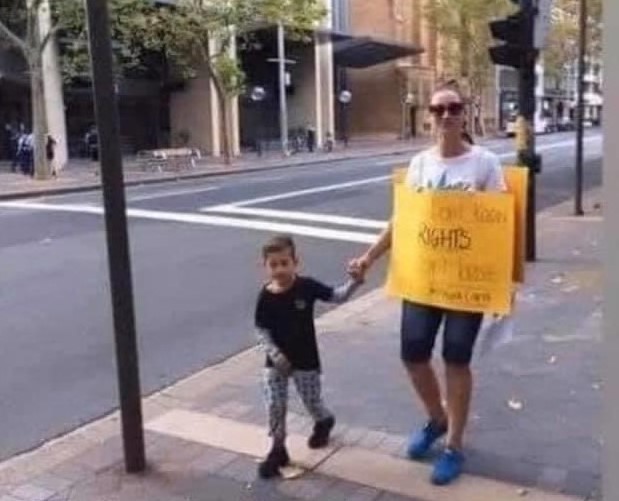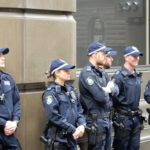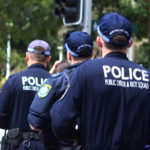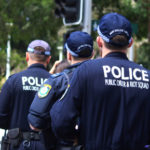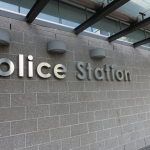Mother Arrested While Protesting Her Rights
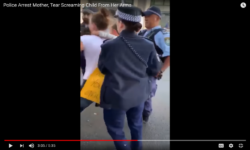
It’s difficult to believe these are scenes from Australia. A dramatic arrest, with police dragging a mother away from her screaming son as she was protesting ‘her rights’ during the Covid-19 pandemic.
Before being confronted by police, the woman, Renee Altakrity, is walking with her son with a view to standing up for what she believes in.
And as can be seen in the video, she is calm when approached by police, even suggesting the officers join her in the effort to protect basic human rights.
But the situation soon escalates.
Wearing a yellow sign that reads: “If you don’t know your rights, you don’t have any. Magna Carta,” she refuses to give her name to a group of officers, before walking away down the street.
For anyone not familiar with the Magna Carta, it is one of the most important documents in history and dates back to the 1200s – it established the principle that everyone is subject to the law, even the king, and guarantees the rights of individuals, the right to justice and the right to a fair trial.
Ms Altakrity speaks with an officer, who says: “ … I am asking for your name because I do believe you are committing an offence,” the officer explained. Despite refusing to give her name, she confirms that she is not being detained, and walks away. But the police move in again. A by-stander asks why she is under arrest. Police don’t answer.
Ms Altakrity’s young son is clearly distressed throughout the entire interaction.
‘You’re scaring your son,’ a female officer says.
“Mummy is not going,” her son replies. “Leave Mummy alone.”
Ms Altakrity is eventually outnumbered by officers and dragged into a police van, and according to her facebook profile was fined $1,000. Although a crowdfunding campaign is now underway to assist the legal battle ahead.
Arrest without a warrant
The distressing video also shows police officers taking away her son. Towards the end of the footage the child is seen kicking and screaming in the arms of two officers.
Bystanders try to go to Ms Altakrity’s aid, repeatedly asking police to explain why she’s under arrest. They don’t answer, but simply move in to create a barrier between the woman and the rest of the protestors, and in some cases try to obstruct others filming the arrest.
In the wake of the arrest, footage of which has gone viral on YouTube, a statement issued by NSW Police says Ms Altakrity was arrested for refusing to give her name, and not complying with ‘move on’ orders. Police also said that the group was failing to adhere with social distancing.
But one by-stander summed up the horrific scene with a simple sentence: “Out of everybody here they grab a woman with a child.”
Police action is more worrying than the virus itself
And in the past few months the actions of police have become more concerning for some, than the actual fear of contracting coronavirus.
In recent years, police have been given a range of new powers – which were added to exponentially when NSW Premier Gladys Berejiklian shut down Parliament in March because of Covid-19. This effectively made New South Wales a police state, with absent government oversight, and police have not wasted any time flexing their new authority. More worryingly, it seems that there are very few checks and balances in place to ensure that police use these powers sensible and appropriately.
Under section 99 of the Law Enforcement Powers and Responsibilities Act 2002 (NSW), police can make an arrest without a warrant if they suspect on reasonable grounds that a person is or has committed an offence, or if they are satisfied that the arrest is reasonably necessary for any one or more of the following reasons:
(i) to stop the person committing or repeating the offence or committing another offence,
(ii) to stop the person fleeing from a police officer or from the location of the offence,
(iii) to enable inquiries to be made to establish the person’s identity if it cannot be readily established or if the police officer suspects on reasonable grounds that identity information provided is false,
(iv) to ensure that the person appears before a court in relation to the offence,
(v) to obtain property in the possession of the person that is connected with the offence,
(vi) to preserve evidence of the offence or prevent the fabrication of evidence,
(vii) to prevent the harassment of, or interference with, any person who may give evidence in relation to the offence,
(viii) to protect the safety or welfare of any person (including the person arrested),
(ix) because of the nature and seriousness of the offence.
Criminalising protesters
Over the past several years, the New South Wales government has also introduced a range of laws aimed at criminalising protesters – effectively curtailing the ability of people to stand up for what they believe in.
The Law Society of NSW, the NSW Bar Association and many other groups have strongly condemned these ‘anti-protest laws’.
